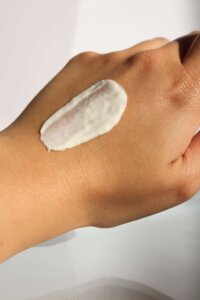Protecting Your Skin without Breakouts

Protecting your skin from harmful UV rays is crucial for maintaining healthy, youthful skin. However, for individuals with acne-prone skin, finding the right sunscreen can be a challenging task. Many sunscreens on the market can clog pores and trigger breakouts, leading to a dilemma of choosing between protecting your skin or risking further acne flare-ups. Thankfully, there are several sunscreen hacks that can help you safeguard your skin from the sun without compromising its clarity and health. In this blog post, we will explore some effective strategies for using sunscreen on acne-prone skin.
1. Look for Non-Comedogenic Formulas
When shopping for sunscreen, always opt for non-comedogenic formulas. Non-comedogenic products are specifically designed to prevent pore-clogging, reducing the risk of breakouts. These sunscreens are lightweight, oil-free, and allow your skin to breathe. Look for labels that indicate “non-comedogenic” or “won’t clog pores” to ensure you’re choosing a suitable sunscreen for your acne-prone skin.
2. Choose Mineral-Based Sunscreens
Mineral-based sunscreens are excellent options for acne-prone skin as they contain zinc oxide or titanium dioxide. These ingredients sit on top of the skin, acting as a physical barrier against harmful UV rays. Mineral sunscreens are less likely to irritate or cause breakouts compared to chemical sunscreens, making them ideal for those with sensitive or acne-prone skin. Additionally, they have a soothing effect and can help calm inflammation often associated with acne.
3. Layer Sunscreen with a Light Moisturizer
If you find that sunscreen alone feels heavy on your skin, try layering it with a lightweight, oil-free moisturizer. Apply a thin layer of moisturizer first, allowing it to fully absorb into your skin, and then follow it up with a non-comedogenic sunscreen. This technique not only helps keep your skin hydrated but also creates a barrier between the sunscreen and your skin, minimizing the risk of clogged pores.
4. Opt for Gel or Fluid Sunscreens
Gel or fluid sunscreens are often preferred by individuals with acne-prone skin due to their lightweight consistency. These formulas absorb quickly and do not leave a heavy or greasy residue on the skin. Gel or fluid sunscreens are also less likely to cause congestion or breakouts. Look for sunscreens with a gel-like texture that offer broad-spectrum protection for optimal results.
5. Reapply Strategically
Regularly reapplying sunscreen throughout the day is essential for adequate protection, but it can be tricky for individuals with acne-prone skin. Applying sunscreen over makeup or oily skin can lead to a messy appearance or exacerbate breakouts. To overcome this challenge, consider using a powder or mineral-based sunscreen in the form of a brush. These products allow you to easily touch up your sun protection without disturbing your makeup or aggravating your skin.
6. Cleanse Thoroughly in the Evening
At the end of the day, it’s crucial to thoroughly cleanse your skin to remove any sunscreen residue, dirt, or excess oil. Use a gentle cleanser that is suitable for acne-prone skin to eliminate any potential pore-clogging substances. Follow up with your regular skincare routine, including a gentle exfoliant or acne treatment if needed. This practice will help keep your skin clean and healthy, reducing the chances of breakouts caused by sunscreen build-up.

Conclusion
Taking care of acne-prone skin requires careful consideration when selecting and applying sunscreen. By following these sunscreen hacks, you can protect your skin from the damaging effects of the sun without worrying about clogged pores or breakouts. Remember to choose non-comedogenic, mineral-based, or gel/fluid sunscreens, and layer them with a light moisturizer for optimal results. Strategically reapply sunscreen throughout the day, and cleanse your skin thoroughly in the evening to keep it healthy and clear. With these tips, you can enjoy the benefits of sun protection while maintaining a blemish-free complexion.

